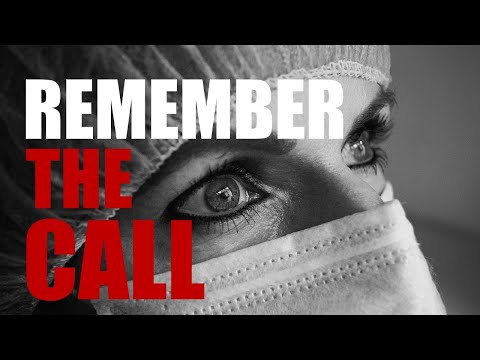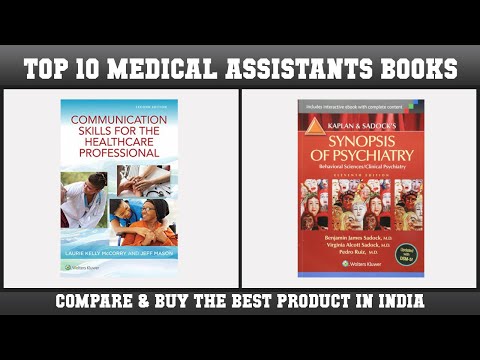Medical Assistance in Dying – Frequently Asked Questions
Contents
- Introduction
- What is Medical Assistance in dying?
- Who is eligible for medical assistance in dying?
- How is medical assistance in dying accessed?
- What are the roles of the health care team?
- What are the potential benefits of medical assistance in dying?
- What are the risks associated with medical assistance in dying?
- What are the ethical considerations around medical assistance in dying?
- What are the legal considerations around medical assistance in dying?
- Where can I get more information about medical assistance in dying?
Get answers to commonly asked questions about medical assistance in Dying (MAID) in Canada, including who is eligible and what the process involves.
Checkout this video:
Introduction
In May 2016, the Canadian government passed legislationmaking Medical Assistance in dying (MAID) legal throughout the country. This new law gives eligible Canadians the option to request medical help to end their lives if they are suffering from a grievous and irremediable medical condition.
The following is a list of frequently asked questions about MAID. If you have additional questions that are not addressed here, please contact your provincial or territorial MAID contact person or visit your provincial or territorial website for more information.
What is Medical Assistance in dying?
Medical assistance in dying (MAID) is when a doctor or nurse practitioner provides medication to a patient that will end their life at their request. For MAID to be legally provided, two independent assessors must confirm that the patient meets all the eligibility criteria set out in the law, and the patient must give their free and informed consent.
What are the eligibility criteria for Medical Assistance in dying?
To be eligible for MAID, you must meet all of the following criteria:
-Be at least 18 years old and legally entitled to receive health care in Canada;
-Be capable of making decisions about your own health care;
-Have a grievous and irremediable medical condition;
-Make a voluntary request for MAID; and
-Give informed consent to receive MAID.
What is Medical Assistance in dying?
Medical assistance in dying (MAID) is when a doctor or nurse practitioner gives a person with a terminal illness, an incurable disease or disability, medication to end their life. This is also called euthanasia.
Who is eligible for medical assistance in dying?
Medical assistance in dying is an option for eligible adults in Canada who are suffering from a grievous and irremediable medical condition.
The term “grievous and irremediable” is not defined in the law, but the Supreme Court of Canada has interpreted it to mean a serious and incurable illness, disease or disability that causes enduring physical or psychological suffering that is intolerable to the individual in the circumstances of their life.
Eligible adults must:
-Be 18 years of age or older
-Be mentally competent to make decisions about their own health
-Have a grievous and irremediable medical condition
-Make a free and informed decision to end their lives
-Give express consent to receive medical assistance in dying
People who are not eligible for medical assistance in dying include:
How is medical assistance in dying accessed?
In order to receive medical assistance in dying, you must first meet the eligibility criteria set out in the federal law. Once you have been determined to be eligible, you must then make a formal request to a medical practitioner or nurse practitioner.
The request must be made in writing and must be signed by you and two witnesses. The witnesses must attest to the fact that you are of sound mind and are making the request voluntarily.
Once the request has been made, the medical practitioner or nurse practitioner will assess your eligibility again and will also assess whether you are suffering from a grievous and irremediable medical condition. If they determine that you are eligible and suffering from a grievous and irremediable medical condition, they will provide you with information about all of your treatment options, including palliative care.
Once you have received this information, you must then wait for at least 14 days before making a final decision. This waiting period can be waived in certain circumstances, such as if your death is imminent.
Once the 14-day waiting period has elapsed, you must then make a written request to the medical practitioner or nurse practitioner for medical assistance in dying. This request must be signed by you and two witnesses who will attest to the fact that you are of sound mind and are making the request voluntarily.
The medical practitioner or nurse practitioner will then assess your eligibility one final time. If they determine that you are still eligible, they will arrange for someone to administer the lethal medication to you.
What are the roles of the health care team?
The health care team is responsible for ensuring that the person seeking medical assistance in dying meets the eligibility criteria and has made a free and informed decision.
The health care team includes:
-A doctor
-A nurse
-A counsellor or social worker
-A pharmacist
-A psychiatrist or psychologist (if required)
The doctor and nurse will assess the person’s physical and mental state to ensure they meet the eligibility criteria. They will also provide information about alternative treatments, including palliative care.
The counsellor or social worker will assess the person’s mental state to ensure they are capable of making a free and informed decision. They will also provide support to the person and their family.
The pharmacist will dispense the medication needed for medical assistance in dying.
What are the potential benefits of medical assistance in dying?
People who are considering medical assistance in dying may do so for a variety of reasons. Some people feel that it is a way to control the circumstances of their death and to die with dignity. Others may see it as a way to reduce suffering, both their own and that of their loved ones.
Some potential benefits of medical assistance in dying include:
-Control over the timing and circumstances of one’s death
-Reduction of physical and/or psychological suffering
-Ability to die with dignity
What are the risks associated with medical assistance in dying?
There are a number of potential risks associated with medical assistance in dying, including the following:
-The person may not be truly competent to make the decision to end their life. This could lead to them making a decision they later regret.
-The person may not be properly informed about all their treatment options, and so they may not be making the choice that is in their best interests.
-The person may be under undue pressure from others (e.g. family members) to choose medical assistance in dying. This could lead them to make a decision they would not otherwise have made.
-If the person is not terminally ill, they may have many years left to live, and so they may come to regret their decision to end their life prematurely.
-There is a risk that, even with medical assistance, the person could experience painful side effects or a prolonged and difficult death.
-There is always a risk that something could go wrong during the procedure, which could cause needless suffering for the person involved.
What are the ethical considerations around medical assistance in dying?
There are a number of ethical considerations around medical assistance in dying, including:
-the sanctity of life
-autonomy
-beneficence
-non-maleficence.
The sanctity of life is the belief that human life is sacred and should be protected at all costs. This belief may lead some people to oppose medical assistance in dying, as they believe it is a form of suicide and therefore morally wrong.
Autonomy is the belief that people have the right to make their own decisions about their lives, including end their lives if they so choose. This belief may lead some people to support medical assistance in dying, as they believe it is a way for people to exercise control over their lives and deaths.
Beneficence is the belief that we have a duty to do good and help others whenever possible. This may lead some people to oppose medical assistance in dying, as they believe it is our duty to prolong life and relieve suffering, even if death is inevitable.
Non-maleficence is the belief that we have a duty to do no harm and avoid causing harm whenever possible. This may lead some people to support medical assistance in dying, as they believe it can be used to avoid prolonging suffering unnecessarily.
What are the legal considerations around medical assistance in dying?
Medical assistance in dying is a legal medical procedure in Canada. As of June 2016, the federal government passed legislation making it legal for adults to request and receive medical assistance in dying, under certain circumstances.
There are strict eligibility criteria that must be met in order for someone to be able to access medical assistance in dying. Two independent doctors or nurse practitioners must assess the person and confirm that they meet all of the criteria.
The criteria include:
– being 18 years of age or older;
– being mentally competent to make decisions about their own health care;
– having a grievous and irremediable medical condition (an illness, disease or disability) that causes enduring physical or psychological suffering that is intolerable to them; and
– making a voluntary request for medical assistance in dying.
People who meet all of the eligibility criteria must also give their written consent to receive medical assistance in dying.
Where can I get more information about medical assistance in dying?
The Government of Canada website provides detailed information about medical assistance in dying, including the eligibility criteria and the steps involved in the process. You can also find answers to frequently asked questions.
If you are considering medical assistance in dying, you should speak with your doctor or health care provider. They can answer any questions you may have about the process and help you determine if you meet the eligibility criteria.







